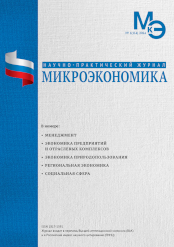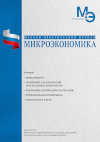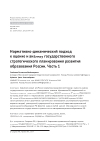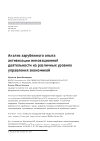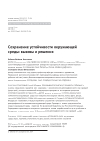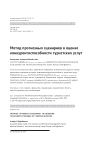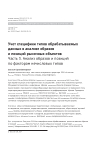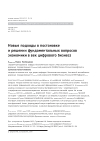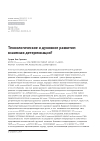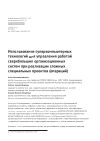Normative-dynamic approach to assessment and analysis of state strategic planning for the development of education in Russia. Part 1
DOI: 10.33917/mic-1.114.2024.94-100
The article proposes a normative-dynamic approach, new for Russia, to the assessment and analysis of state strategic planning for the development of education in the Russian Federation, aimed at improving the management of the implementation of the state program «Development of Education» for the period 2018-2025 and the national project «Education» for the period 2024-2030. Based on the use of rank correlation methods and taking into account the current legislative acts and strategic planning documents, various options for the current, short-term, medium-term and long-term normative and dynamic assessment of the development of education in the Russian Federation are considered. The conclusion is made about the weak scientific validity and low effectiveness of the state strategic planning of the State Program for the development of education in the Russian Federation.
References:
1. Afonina I. A., Soldatov R. V. Strategic analysis of the development of the educational sphere of Moscow in the 21st century. Microeconomics. 2021;1(96): 88–102. (In Russ.).
2. Guskov Yu.V., Soldatov R. V. State educational policy of Russia in the 21st century and strategic prospects for its further implementation. BULLETIN of the Moscow City Pedagogical University. SERIES «Economics». 2020;4(26):83–99. (In Russ.).
3. Kendall Maurice J. Rank correlations / trans. from English, scientific ed. and preface EAT. Chetyrkin and R. M. Entova. M.: Statistics, 1975. 214 p.
4. Lomovtseva O. A., Soldatov R. V. On the normative-dynamic analysis of the strategic goals and objectives of the national project «Education». Economic and managerial congress: collection of articles based on the materials of the International scientific and practical complex event of the National Research University «BelSU», November 10–11, 2022 / Responsible. ed. V. M. Zakharov. Belgorod. Publishing House «BelSU». National Research University «BelSU», 2022. pp. 63–69.
5. Lyubimov A. P., Yudin V. I., Soldatov R. V. On the strategy of the state educational policy of Russia in the 21st century. Representative power — XXI century. 2021;3:34–43. (In Russ.).
6. Soldatov R. V. On the normative-dynamic approach to strategic planning for the development of education in Russia. BULLETIN of the Moscow City Pedagogical University. SERIES «Economics». 2022;1(31):87–100. (In Russ.).
7. Syroezhin I. M. Planfulness. Planning. Plan. Scientific ed. E. Z. Maiminas. M.: Economics, 1986. 248 p.
8. Syroezhin I. M. Improving the system of efficiency and quality indicators. M.: Economics, 1980. 193 p.


